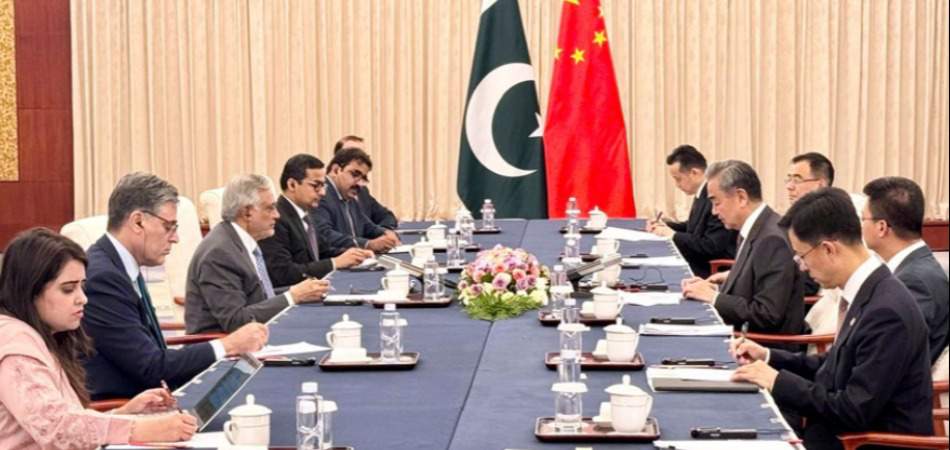CPEC investments to help close Pakistan’s power deficit, boost GDP: IMF

MG News | July 15, 2017 at 06:45 PM GMT+05:00
International Monetary Fund (IMF) has said that the investments under China Pakistan Economic corridor (CPEC) can help close Pakistan's power deficit, significantly improve its fuel mix, and boost Gross Domestic Product (GDP) by adding $13 billion in 7 years.
“The planned expansion of energy sector capacity could eliminate Pakistan's 6GW generation capacity gap in 2016 as early as end-2018”, IMF said in its latest report on “Pakistan: Staff report for the 2017 article IV consultation.”
It said that in the process, Pakistan's excessive reliance on furnace oil would be significantly reduced and impact on GDP will likely come in three stages: construction, power generation, and-over time-second-round effects on broader economic activity due to increased productivity, lower costs, and improved trade connectivity.
The first two stages (direct contribution) could add about $13 billion to Pakistan's GDP in the next seven years (4.7 percent of FY 2015/16 GDP). Second-round effects will likely accrue gradually and could lead to a significant contribution in the long run, depending on various other supportive factors.
The report however, proposed that realizing the transformational potential of Pakistan's investment program while maintaining external stability will require supportive policy action.
Building up foreign exchange reserves will be important to cushion the period of increased BoP outflows. Strong and sustained reform efforts aimed at raising exports by improving competitiveness and the business climate will be critical to maintain long-term external sustainability.
Bringing the power distribution sector to full cost recovery will help secure the long-term sustainability of the energy projects.
Furthermore, containing fiscal costs by limiting tax exemptions, maintaining a supportive environment for all investments, and a gradual phasing in of new external commitments will help maintain macroeconomic stability and strengthen growth sustainability, added the report.
Related News
| Name | Price/Vol | %Chg/NChg |
|---|---|---|
| KSE100 | 138,597.36 256.32M | -0.05% -68.14 |
| ALLSHR | 85,286.16 608.38M | -0.48% -413.35 |
| KSE30 | 42,340.81 77.13M | -0.03% -12.33 |
| KMI30 | 193,554.51 76.19M | -0.83% -1627.52 |
| KMIALLSHR | 55,946.05 305.11M | -0.79% -443.10 |
| BKTi | 38,197.97 16.53M | -0.59% -225.01 |
| OGTi | 27,457.35 6.73M | -0.94% -260.91 |
| Symbol | Bid/Ask | High/Low |
|---|
| Name | Last | High/Low | Chg/%Chg |
|---|---|---|---|
| BITCOIN FUTURES | 117,670.00 | 121,165.00 117,035.00 | -1620.00 -1.36% |
| BRENT CRUDE | 69.23 | 70.77 69.14 | -0.29 -0.42% |
| RICHARDS BAY COAL MONTHLY | 96.50 | 0.00 0.00 | 2.20 2.33% |
| ROTTERDAM COAL MONTHLY | 104.50 | 104.50 104.50 | -0.30 -0.29% |
| USD RBD PALM OLEIN | 998.50 | 998.50 998.50 | 0.00 0.00% |
| CRUDE OIL - WTI | 66.03 | 67.54 65.93 | -0.20 -0.30% |
| SUGAR #11 WORLD | 16.79 | 17.02 16.71 | 0.05 0.30% |
Chart of the Day
Latest News
Top 5 things to watch in this week
Pakistan Stock Movers
| Name | Last | Chg/%Chg |
|---|
| Name | Last | Chg/%Chg |
|---|




 Weekly Forex Reserves
Weekly Forex Reserves